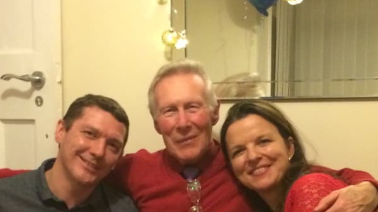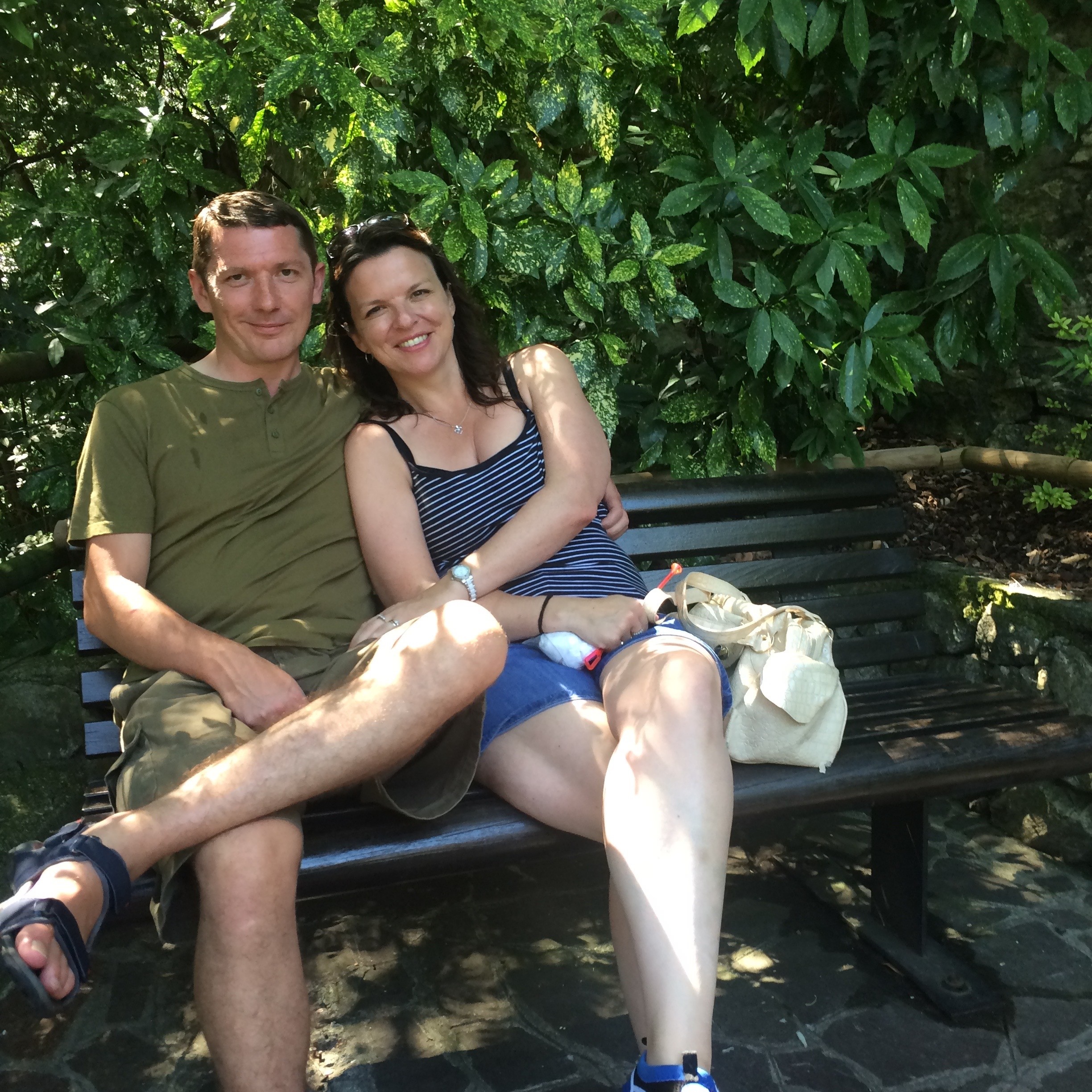Herpes Simplex Virus Encephalitis — Yvonne’s Story

ere, Yvonne shares her experience of herpes simplex virus encephalitis
This is my experience of herpes simplex virus encephalitis, from diagnosis, recovery and where I am now:
One Saturday night at the end of January 2013, I lost my sense of taste, and was unable to eat my evening meal. It was no big deal; after all, this had to be the symptoms of a stomach bug, didn’t it? By the next day, I was vomiting profusely and I was losing sensation in my hand and foot, so I decided to visit an out of hours doctor. He suspected that I had a stomach virus, and I was told to simply go home and rest.
Diagnosis
But by the following Monday, my symptoms were becoming so severe that we had to call my GP for a home visit. By a sheer miracle, he had seen a patient with encephalitis before, and, after recognising my inability to answer simple questions, he phoned a hospital telling them I was either having a stroke or fighting encephalitis. I was admitted straight away and immediately treated for herpes simplex virus encephalitis as directed by Professor Solomon, one of our country’s most senior encephalitis specialists.
None of us suspected that a few hours later I would begin having seizures and slip into coma. Thankfully, this happened to me in a hospital bed, and I was immediately given the support that would save my life.
After the coma
When I awoke 2 weeks later, I had lost control of the most basic bodily functions, such as using the toilet independently. My sense of taste and smell no longer functioned properly; chocolate tasted like plastic and flowers smelt vile.
I’d been an English teacher for 18 years, but I was unable to write the most basic sentence on the Valentine’s card my family bought as a gift for my husband. Worst of all was my appalling short-term memory, which made speaking virtually impossible. I could recognise my Dad, but had no recollection that I had a daughter at home.
By my fifth week in hospital, the doctors decided that I should leave the ward go into residential care in a rehabilitation centre. I believed that there was nothing wrong with me, and begged to go home.
Going home
My husband and Dad bravely supported my request. They met a consultant and reached an agreement that they would give me 24 hour supervision if I was allowed to go home, and they would take me to appointments with specialists such as a speech therapist and with Professor Solomon.
I think they initially must have regretted their decision.
My appalling short-term memory meant that I left taps on, completely flooding our kitchen and causing serious damage. But in my mind, I was back to normal, and I felt that I didn’t need their support.
Recovery
It was my amazingly patient Dad and a wonderful speech therapist who undoubtedly allowed me to recover beyond all expectations during that first year. While my husband was at work, my Dad walked my daughter to school with me, and taught me basic skills such as how to use a bank cash machine and how to pay for an item with a credit card. Weekly meetings with the speech therapist not only helped me regain my speech, but also to come to terms with the horrendous difficulties my poor short-term memory was creating.
I slept almost constantly that first year, but when I was awake, it felt like I had a huge safety net supporting me. The second year of recovery was the hardest, as I had to come to terms with the fact that my brain now operates on a Tesco Value battery rather than a Duracell one, and fatigue was to be a long-term consequence.
My constant need to sleep meant that even happy events like Christmas Day were spent in bed. At that stage of my recovery, I also realised that my poor short-term memory meant that I would never be able to teach English again, as recalling the plot of a book was simply impossible. Resigning from my teaching job was devastating, as I believed I would never be able to work again. My hair fell out as my body reacted badly to the stress I was experiencing and the drugs I was taking to prevent the recurrence of epileptic seizures.
Light at the end of the tunnel
My 5-year-old daughter was struggling at school, but by helping her with her homework, I found that I still recalled how to teach the basic skills such as reading, handwriting and spelling.
In September 2014, my work with my daughter gave me the courage to apply for a temporary post, working mornings as an assistant in a local school library, covering for a staff absence. The school was walking distance from my house, an important fact now that I could no longer drive. The library was a quiet environment, a factor that is essential for me when reading or writing. The morning working hours meant that my brain’s battery could recharge, as I could sleep in the afternoon before I collected my daughter from school.
I was able to assist with the school’s accelerated reading programme, supporting pupils who struggled to read, a job that I knew I was able to do. I couldn’t have asked for a happier ending. The school was so pleased with my performance that, 2 years later, the head gave me a permanent post, a miracle I would never have dreamed possible in 2013.
Where I am now
The job allows me to track the continuing progress in my recovery, as this year I can spontaneously recall the names of most pupils when I look at them, a skill that was impossible without a written list of names five years ago.
Fatigue remains the hardest long-term effect of herpes simplex virus encephalitis. If I ignore the need to rest and recharge my brain’s batteries, I can bring on an epileptic seizure, as I have learned through bitter experience. I am never going to be a night owl, and I still sleep most evenings on the sofa in front of the television.
But 6 years after being diagnosed with herpes simplex virus encephalitis, my life feels far more precious now than it did before. It has made my relationship with my husband, my daughter and my Dad incredibly close; they have been at my side supporting me at every stage of my recovery. I am also blessed with friends and siblings whose loyal support has never ended during the struggle to regain my independence.
I hope my story will give other sufferers the reassurance that, while life isn’t never the same after encephalitis, it is possible for a sufferer to find happiness again.
July 2024 Update
It’s 11 years since I was diagnosed with encephalitis, and 6 years since I first submitted ‘My Story’ to the Encephalitis International charity.
There have been some significant improvements since then. The most positive changes have been the continuing improvements in my short-term memory. Occasionally, I astonish my family with my answers watching television shows like “The Chase” and “The 1% Club”. Chess is another pastime I have begun to enjoy, and I have re-read some of the books that I used to love. I will never forget my surprise reading Stephen King’s ‘Salem’s Lot’ when the characters have to secretly find out if a man is a vampire, they decide to pretend he needs medical checks to see if he has encephalitis (I never dreamed that would be my illness when I read that story as a teenager in the 1980s!).
I have also been able to give one-to-one learning support to infants and teenagers with learning difficulties, with some lovely results. It has been incredibly uplifting, as it feels like the old ‘me’ still exists, even though I can still struggle to recall the names of colleagues I used to work with if I bump into them unexpectedly.
Downsides
The most serious downside has been the increase in epileptic seizures I have experienced since having severe COVID-19 in 2020. The seizures became frequent enough for me to have to give up my jobs as a school librarian and as a school governor, as fatigue can trigger a seizure, and that is a risk that I cannot take. I now see a new encephalitis consultant who also specialises in the treatment of epilepsy. I had a lovely moment at my first appointment with him, when having looked at the area of damage on my brain scan related to speech, he had assumed I would struggle to speak to him. His surprise that I was able to clearly describe my recovery journey reminded me how lucky I was to have had the support of a brilliant speech therapist in 2013, when I was first diagnosed.
The Encephalitis International charity has also been vital in stopping the epilepsy being devastating. Working as a volunteer with the charity, I have met survivors of encephalitis at North West Zoom meetings and in-person, and that has prevented me from feeling that I am alone in the encephalitis roller-coaster recovery journey. The charity’s meetings have made me appreciate the positive progress that I have made, despite my epilepsy, and I have also made some lovely encephalitis survivor buddies.

View our other stories for more lived experiences of encephalitis.
Get help
Our support team are available from 9am to 5pm (GMT), Monday to Thursday, and 9am to 4.30pm (GMT) on Fridays.
To get in touch, simply call +44(0)1653 699599.
Contact our helpline
